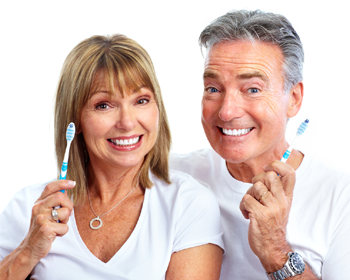As a person reaches their senior years, taking care of their aging teeth may become a daily challenge. Many older adults experience the loss of their natural teeth simply for the reason that they had lost the ability to take care of them properly. There are factors associated with age that make it increasingly difficult to do all the hygiene steps that are required for good dental health.
Age related difficulties in caring for teeth
Some of the main factors that make it hard for a senior to care for their own teeth are:
Arthritis and other similar conditions cause limited dexterity. This may hinder the aging adult’s ability to clean her own gums and teeth properly with a toothbrush.
Memory lapses associated with age, mild dementia or even Alzheimer’s disease may cause some people to simply forget about dental care, even if they had always been really good at establishing oral hygiene habits in the past.
When elderly people lose their natural teeth and are fitted with dentures in old age, sometimes the proper cleaning procedures may be neglected. This could be due to forgetting or just from inexperience.
Oral health for seniors
Your loved one’s senior care service provider can be a big help in assisting your elderly family member to take good care of her teeth and gums, regardless of whether she has her natural teeth or wears dentures. The caregiver can not only give reminders and encouragement to clean teeth after each meal, she can also assist in the oral hygiene.
Here are some tips that may be helpful:
Try using an electric toothbrush. This makes brushing a lot easier for people who have limited dexterity with their hands and fingers. The electric brush is great for removing plaque and also cleans and stimulates the gums.
For seniors with severe arthritis or finger immobility, try putting something big and easy to grasp on the handle of the electric toothbrush, for example a bicycle handle grip.
Always use only the recommended cleaners for dentures. Other household cleaners are too harsh and may irritate the mouth of the denture wearer.
Your loved one’s senior care service provider will be trained in helping with the oral health of someone with Alzheimer’s disease, Parkinson’s disease etc.
It is important to note and report to the elderly adult’s doctor any changes in health, including oral health. Sometimes it could be a side effect of medication or a symptom of an illness, so don’t let oral health go unchecked.

